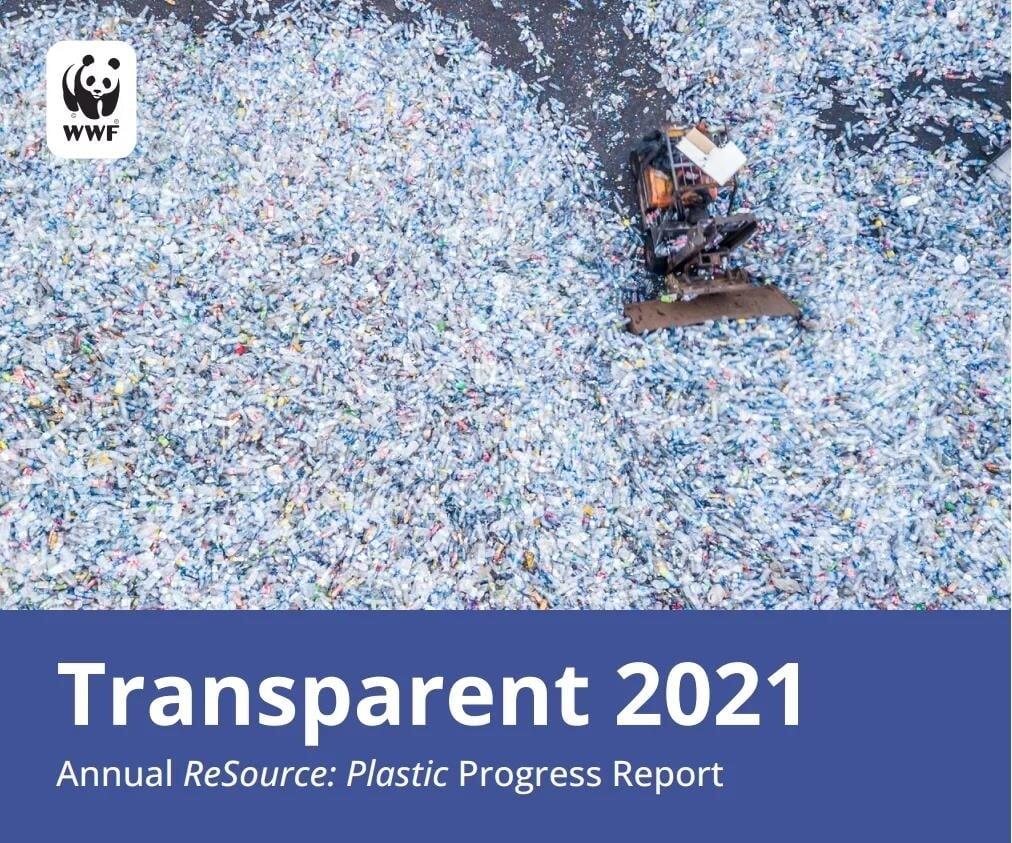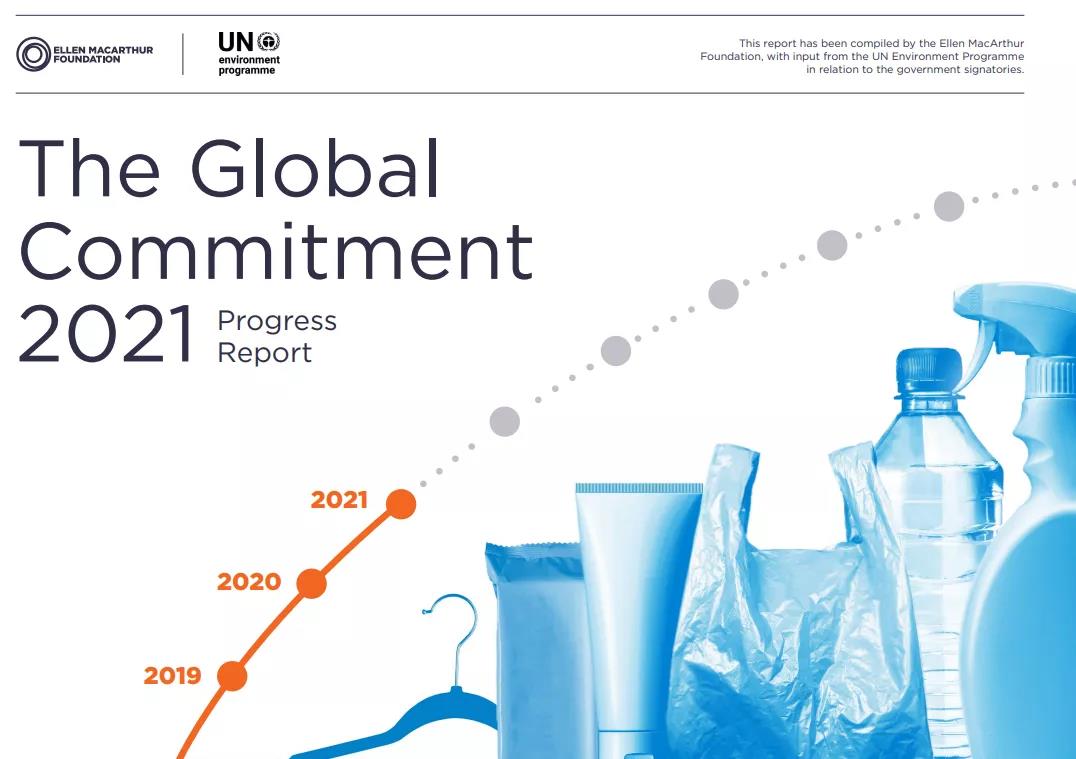WWF's ReSource: Plastic program reports that key members of the program have increased the use of recycled plastics from 7.8 percent in 2018 to 9.6 percent in 2020, with 124,000 tons of new recycled material used, or 273 million pounds. That's 273 million pounds.
These members include The Coca-Cola Company, Krieger Green Mountain Pepper Dr., McDonald's, Procter & Gamble, Starbucks and, new to the project team, Amcor, Colgate Palmolive and Kimberly.
8 enterprises in the past two years, the proportion of waste plastic use of domestic sources.

Enterprise | 2020 | 2019 |
The Coca-Cola Company | 10.9% | 8.9% |
Colgate Palmolive | 10.5% | No data |
Procter & Gamble | 9.7% | 7.4% |
Starbucks | 5.6% | Hold flat |
Amko | 4.5% | No data |
Kimberly | 2.5% | 1.9% |
Dr. Krieger Green Mountain Pepper | 2% | 0.4% |
McDonald's | 0.6% | 1.2% |
The report notes that these improvements are encouraging, but it is also important to note that difficulties in sourcing recycled materials continue, as even the project's member companies are still far from meeting their sustainability goals for use, despite increasing the percentage of recycled materials used. While concentrated investments have been made in specific materials and key markets, the overall recycling system has been slow to evolve. Concerted action and investment in recycling systems is always a key point in meeting sustainability goals, as are incentives to keep new materials affordable and easy to procure.
The project looks at the elimination of unnecessary plastics by member companies, recycling rates, and the use of waste plastics from domestic sources. Last year, these brand companies released their plastic footprint benchmarking data. The report states that these companies use 8% of their domestic source waste plastics (PCR) in their packaging.
Some of the companies mentioned above also include their plastic use data as part of the global commitment of the Ellen MacArthur Foundation. They include Amcor, Colgate Palm, Krieger Green Mountain Pepper Dr., Procter & Gamble, Starbucks, Coca-Cola Co.
The Ellen MacArthur Foundation and the United Nations Environment Programme also released a new report in November 2021 on the Global Commitment to a New Plastics Economy 2021. This is the third year that the Ellen MacArthur Foundation has reported on their progress.

The Global Commitment to a New Plastics Economy report shows that after decades of growth, the use of virgin plastics by brands and retailers who signed the Global Commitment is already showing signs of peaking in 2021 and is expected to decline by nearly 20 percent by 2025.
Much of the current progress has been driven by recycling, but this is not enough to solve the plastic pollution problem all parties urgently need to increase efforts to phase out the use of single-use plastic packaging. The call for a global agreement on plastic pollution is gaining more momentum than ever before.
Percentage of post-consumer recycled content in plastic packaging for branded and retail signatories in 2018, 2019 and 2020 (weighted average).

In terms of subsistence source waste plastic (PCR) use, even a small increase in PCR translates into a large amount of recycled plastic, as consumer goods companies are huge users of plastic. For example, Coca-Cola sold 2.96 million tons of plastic packaging in 2020 with 11.5% PCR, or about 341,000 tons of PCR.
The following is detailed information on the use of PCR by global packaged goods companies, broken down by industry, from the largest users of plastic packaging to the smallest user organizations.
Beverage Company
Enterprise | PCR rate in 2020 | Compared to 2019 |
Coca-Cola | 11.5% | 1.8% |
Pepsi | 5% | 1% |
Dr. Krieger Green Mountain Pepper | 2% | 1.6% |
Molson Coors Brewing | 1.6% | 0% |
Diageo | 5.4% | 2.9% |
Spadel | 5.5% | -1.7% |
Innocent Drinks | 31% | 2.7% |
Pernod Ricard | 13% | 6.4% |
Cosmetics
Enterprise | PCR rate in 2020 | Compared to 2019 |
L'Oréal | 15.8% | 8.7% |
NATURA Cosmetics | 15% | 6% |
L’OCCITANE en Provence | 21.4% | 6.7% |
Food and Snacks
Enterprise | PCR rate in 2020 | Compared to 2019 |
Clif Bar & Company | 0% | 0% |
Ferrara | 0% | Not available |
Nestle | 4.2 | 2.2% |
Danone | 10.3% | -0.3% |
Yizi International | 0.3% | No change |
Mars, Incorporated | 0% | 0% |
Ferrero | 3.5% | No change |
FrieslandCampina Nederland | 1% | 0.1% |
Knorr Corporation | 0.09% | -0.41% |
Driscoll's | 66.6% | Not available |
Ajiomei Corporation | 2.49% | 0% |
McCain Foods | 0% | Not available |
SOVENA | 0.6% | Not available |
Japonic Group | 11% | 10% |
Home and Personal Care
Enterprise | PCR rate in 2020 | Compared to 2019 |
Werner & Mertz | 53.9% | 1.9% |
Freudenberg home and cleaning solutions | 0% | Not available |
Unilever | 11% | 6% |
Henkel AG & Co | 12% | 3.5% |
Colgate Palmolive | 10% | 3% |
RB | 3.5% | 0.5% |
Johnson & Johnson | 1% | No change |
Clorox | 11% | No change |
Johnson | 18.8% | 3.07% |
Bye Erstdorf | 1% | 0% |
Essity AB | 2% | 0% |
Baroness Ellen MacArthur, founder and chair of the board of the Ellen MacArthur Foundation, said, "Plastic pollution cannot be solved through recycling alone, and eliminating single-use packaging is an important part of the solution. But our report shows that signatories are investing very little in this area, which is alarming. We need to focus more urgently on upstream innovation and rethink how we deliver products using packaging that is either unpackaged or reusable. Not only does this avoid waste from the beginning of design, it also means we can avoid carbon emissions from the beginning of design, while creating new business opportunities. It is estimated that converting just 20 percent of plastic packaging from single-use to reusable would represent a business opportunity of approximately $10 billion."

